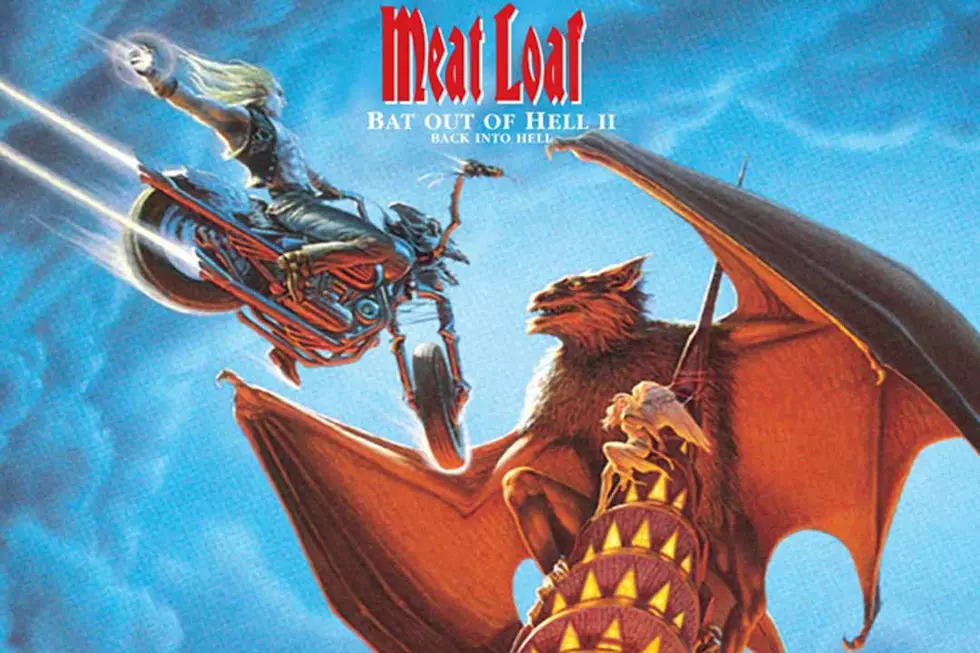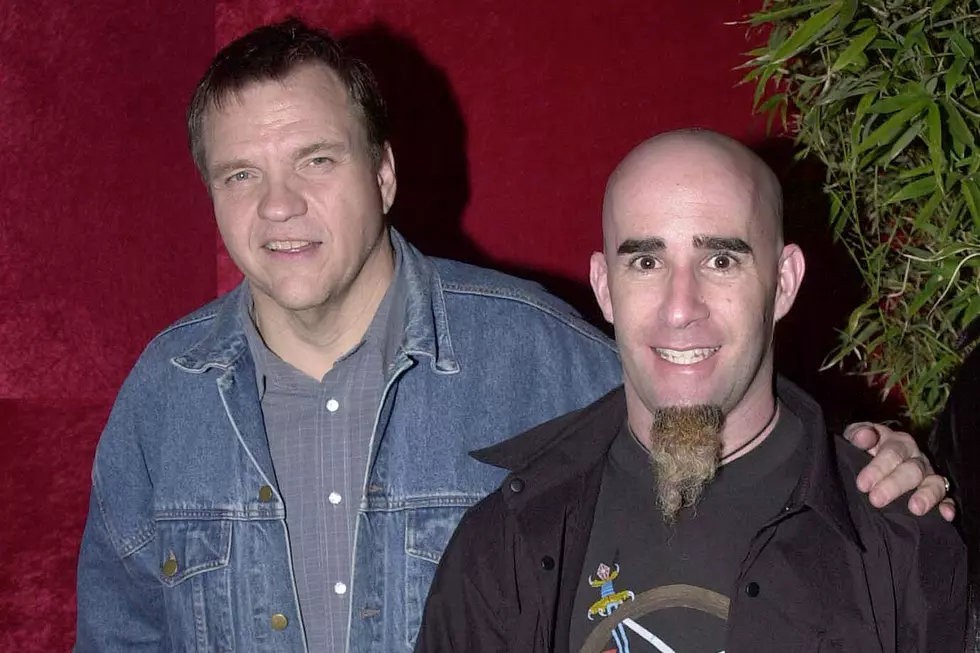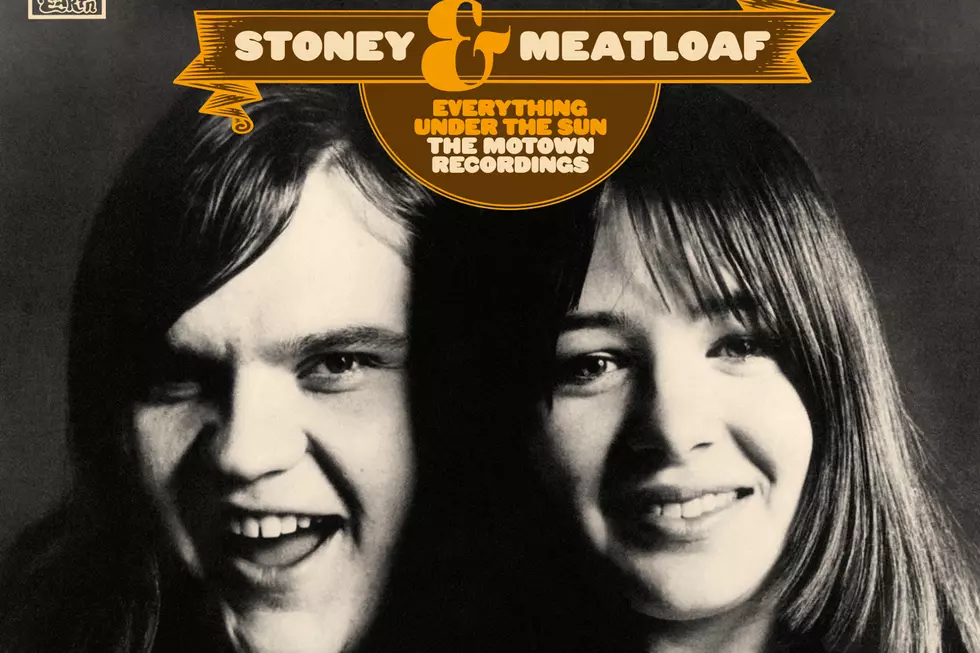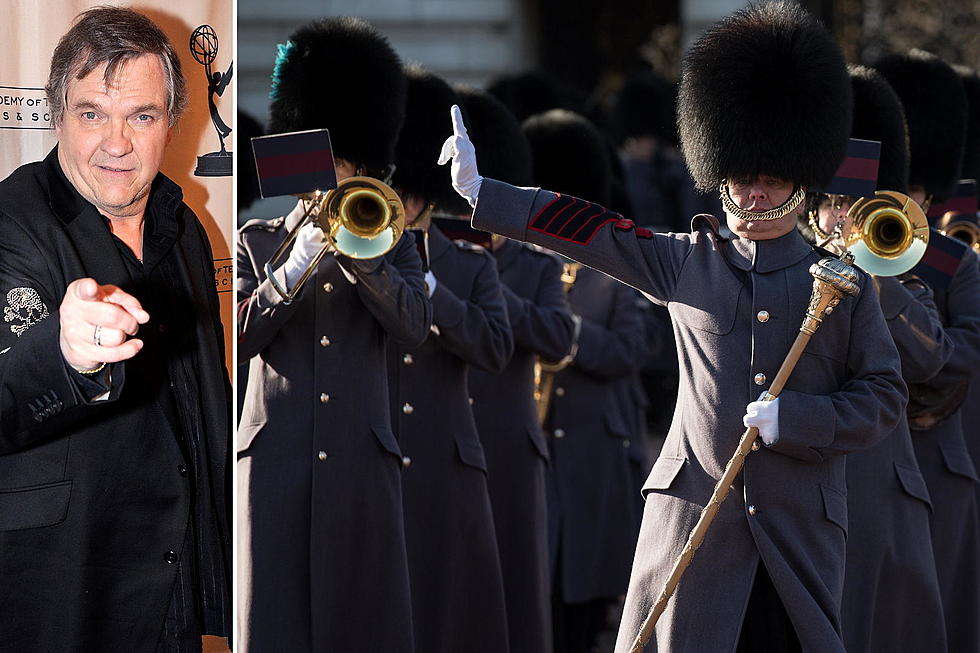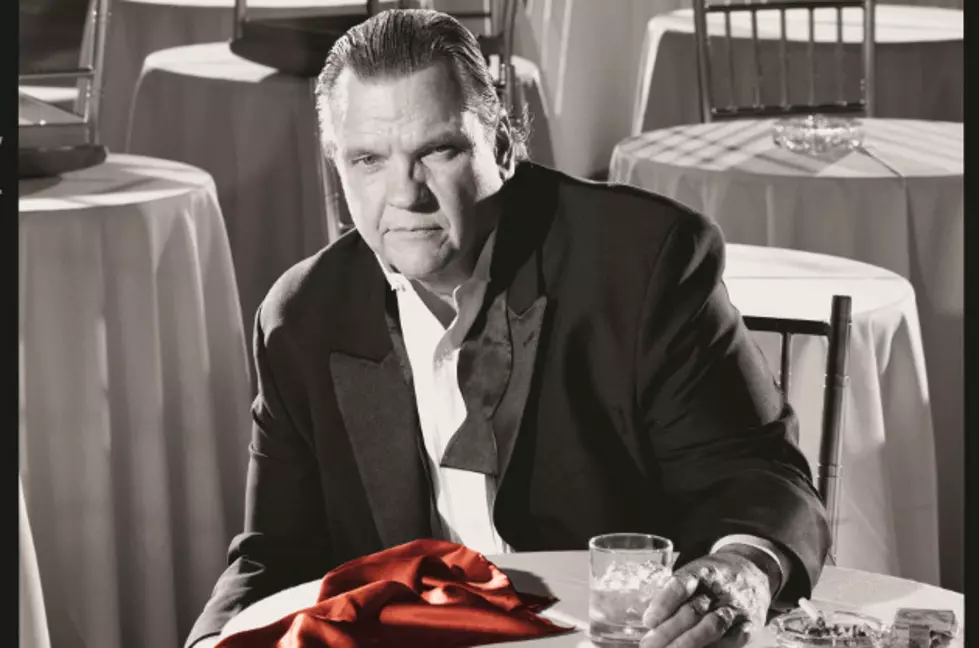
Meat Loaf On His New Vegas Show, ‘Bat Out Of Hell’ And The Reason That Sir Paul McCartney Should ‘Stay Home’
Even though his recent tours have been billed as his last “at-bat” in relation to worldwide touring activities it appears that Meat Loaf still thankfully has a few innings left and plenty of planned activities on deck.
He’ll trade the tour buses and airplanes for an extended stay in Las Vegas (beginning on September 26) as the first headliner of ‘RockTellz and Cocktails’ at the Planet Hollywood Resort & Casino.
The interactive evening of entertainment will find Meat fielding questions from the audience and he promises that each evening will be different. We spoke with the veteran vocalist/actor earlier this week to find out what fans can expect from the shows and he also spent some time looking back at some of his career highlights, including the legendary ‘Bat Out of Hell’ album, more than 35 years later.
How are you doing?
I’m good. Where are you?
I’m here in Cleveland.
In Cleveland, Ohio!
You’ve got a lot of history here!
I certainly do -- a lot of history including one of the best touch football games ever played!
What’s the story behind that one?
It was ‘MMS [Cleveland rock station WMMS-FM] versus another radio station. I was playing for ‘MMS and we tortured the other radio station. [Laughs]
It’s always good when you end up on the winning team!
Oh yeah. I played a lot of softball, like [with] ‘NEW [legendary New York radio station WNEW-FM], [we] played against the Yankees staff...and we crushed ‘em! We had home plate at second base, but that’s okay -- I hit a ball out of the park from second base, so I hit a homerun out of the park in Yankee Stadium, get out of town, c’mon dude!
Did you play a lot of sports as a kid? Was the deck loaded going in?
Oh yeah. I didn’t play basketball, but I played football and baseball and I did the shot put -- until I got hit in the head with it.
Oh man.
Yeah, I got hit in the head with a 12 pound shot [when I was] a sophomore in high school at 62 feet. Yeah, I’ve had 18 concussions, I’ve been in eight car wrecks, I’ve been in a plane that didn’t have front landing gear when we came down. I’ve been in a plane that lost its hydraulics on landing -- that was the most fun ever. We were tipping from one side to another, rolling across the grass. [I’ve been on] two other planes, one private and one normal that the wind hit us so hard [while landing] the wing hit the runway.
I was in a private jet one time about 500 feet in the air and the runway was in front of us and a wind shear hit us and the landing strip was [suddenly] no longer in front of us out the left side window and that’s the only time I’ve ever been afraid in a plane and I’ve been in some smaller planes [during] really choppy weather, especially in some turboprop [planes].
Going into Chicago in the wintertime in a turboprop is not really something you really want to do, but I’ve done it a few times. You talk about bouncing -- it’s like being on a trampoline. But I’ve only been scared on a plane one time.
With all of those experiences, I could see why you might want to wind down a long touring career and do something a little bit more stable that would put you in one place like this Vegas run that you’re going to be doing for six weeks.
Yeah, I’m hoping it goes to eight [weeks]. We’ve got a deal to extend to eight if we do the right thing and then we’ve got a deal to come back next year and then the Nederlanders are wanting me to take it to Broadway and then over to the West End.
Considering the diversity that has made up your career, how do you even begin to take stock of that and put together a show like this?
Well, you know what, you have to do it [right]. I’m having a hard time naming somebody [who would be able] to follow me [and do this show]. I can think of a few people, Roger Daltrey, Sting could probably do it -- if Elvis [Presley] was alive -- I don’t know if Elvis could do this kind of thing. There’s a few artists that aren’t able to talk and communicate and be varied enough. Because this show doesn’t repeat. Every night will be completely different. Because I’ve done so much improv -- if you understand improv, improv is based on a foundation.
You can do the same improv, but each night you build a different house. So that’s what’s going to happen with this show. It’s all going to depend on what the audience asks me and what they want to talk about and what they do. I’m going to run it from an iPad, so it’s multimedia -- I’m going to be like Steve Jobs.
Depending on the question, we’re going to categorize it into years, so if they ask me about a particular point in time, I have pictures and I’ll click on those years and bring those up and then they’ll all spread out and I can go “okay, here’s [Todd] Rundgren, here’s [Jim] Steinman, here’s Ellen Foley, here’s Karla DeVito, there’s so and so” and I can go that way. Or if they want to talk about John Belushi in 1972, I can go to 1972 and there’s me and John.
Or if they want to talk about me doing ‘Shakespeare in the Park,’ BAM, there it is, ‘Rocky Horror,’ there it is -- there’s me and Susan [Sarandon], there’s me with Tim [Curry]. And then if they want to talk about “oh, what were your influences,” I’ll bring up Ethel Merman, Mahalia Jackson, Mick Jagger and the Stones and I’ve got music that will play behind that. I’ll have Ethel Merman singing, Jagger singing ‘King Bee’ and I’ll have Elvis singing something.
You just don’t know what’s going to happen. You have absolutely no idea and then you have to play the politician at a debate. Where they ask you one question, you can answer it and then turn it on them so that I can get to the song that I want to get to. They ask them “what do you think about education” and they turn it into talking about welfare -- that’s the politician’s trick and I’m good at that.
You’ve been very prolific in recent years with new music and some folks don’t like to look back and go the retrospective route with something like this. What was it like getting into the headspace to do a show like this?
Believe it or not, we just did [a show] last weekend in the U.K. playing for 37,000 people. We did [the song] ‘Bat Out of Hell,' but I don’t remember doing it. Because it’s never the same. As an actor, you’re taught that everything is about the truth of the moment. Everything is about humanizing that moment and acting makes you more human than most humans, believe it or not -- it humanizes you.
So ‘Bat Out of Hell,’ if we had to talk about the lyrics, I probably couldn’t remember the lyrics without singing them. I don’t remember doing it, but I know we did two shows back-to-back to 37,000 people and I know that we do ‘Bat Out of Hell,’ ‘Paradise By The Dashboard Light’ and ‘You Took The Words (Right Out Of My Mouth)’ in the same key that we cut them in 37 years ago and there’s very few people my age that are out on the road -- in fact there’s no one -- that’s not down a step, a step and a half or two steps from their original key -- except for me.
[It’s] just the tone of my voice has changed, because I had three sinus surgeries and two vocal surgeries. So people that don’t...I call them “tourists” -- they hear ‘Bat Out of Hell’ and they come to the show and because I don’t sound like that ‘Bat Out of Hell’ record that was sped up a quarter of tone anyway -- so I’ve never sounded like that -- they go “oh God, he’s lost his voice!”
No, I haven’t! Tom Jones didn’t lose his voice, but he doesn’t sound the same as he did in the ‘60s. [Rod] Stewart doesn’t sound the same -- Elton [John] certainly doesn’t sound the same as ‘Rocket Man.’ But I seem to be scrutinized more than others, because the songs are much more complicated and ‘Bat Out of Hell’ [for example] covers three and a half octaves. All I know from last weekend is that on the two nights, I hit eight high Cs perfectly, because ‘Bat Out Of Hell’ ends in a high C.
Talking about the scrutiny, you’ve always been very active with your fans on social media…..
Oh, I definitely am -- if you’re going to do it, you might as well do it. It’s like doing an interview, I never have figured out why [some people don’t do interviews] and it’s not actors. You know, actors, they do [lots of] interviews, we might spend five days out on the road doing just marathon interviews for movies like ‘Fight Club’ or [things like that].
You not only do that, you [also] go to Japan, Germany, Italy -- you go everywhere. I mean, for ‘Fight Club,’ we were everywhere. I was with Brad [Pitt], Ed[ward Norton] and Helena Bonham Carter -- the four of us were everywhere. I never have understood why [you don’t want to do that]. You’re in this business, you want people to buy tickets, you want people to buy records [and] you want people to do this -- dude, you gotta work!
Looking at some of the things that you’ve done, like the work for National Lampoon or your Motown period, any one of those things could have sent your career in a really interesting direction, but it seems like the path that you chose ultimately allowed you to incorporate the best of both worlds from your theatrical work and musical interests.
Oh yeah, plus I wanted to know what it was like to be a standup comic, so I did four of those. I’ve gone on ‘Ghost Hunters.’ I’ve hosted game shows, because I want the experience. People get upset with me because I choose to host a game show. They go, “You don’t need to do that” and I go, “Yeah, I know I don’t need to do that, but do you understand what I’m learning?” Because the object of this exercise and being an actor or entertainer is [to have] a learning experience. I just read an interview with Paul McCartney and it upset me a little bit.
He said, “Well, after 40 it all becomes the same” and I just went, “Oh my God, well then, Paul, please stay home.” Because that’s not what’s going on -- and I love Paul McCartney. Every time that you walk on that stage, every time that you do an interview -- it doesn’t make any difference what you do -- it’s a learning experience. You need to understand that. The minute you stop learning is the minute you stop growing is the minute you should go home and sit in your chair and watch TV.
Somebody like you, you’re always looking to feed that creative mind.
Oh, it’s all I do. Francis, who works for me, came in the other day and I was rehearsing one of my characters and she looked at me and she goes, “What are you talking about? What are you doing?” and she goes, “Oh, you’re rehearsing one of your characters, aren’t you?” and I said, “Yep!” Every night that I go on the stage for ‘RockTellz and CockTails,’ believe me, that’s going to be one of the biggest learning experiences ever, like since I’ve been doing improv way back in 1975. This is a major play here -- it’s more of a learning thing than even studying characters. This is on the level for me, really, of Arthur Miller or Tennessee Williams.
How much will this show give you the opportunity to rearrange and re-imagine some of those classic songs?
We’re not really rearranging anything. That’s the problem -- they want the show to be an hour and a half, but they want me to play all of the songs. The songs are so damn long and that’s the thing that people never realize is that, “Well, you’ve only got an hour and a half.” Well okay, we can play ‘Paradise’ and ‘Bat’ then. It’s like, c’mon guys, get it together, listen to the records!
Speaking of listening to the records, it’s been more than 35 years since the ‘Bat Out Of Hell’ record and it was quite a struggle to get that album released….
Yeah, but you know what, it’s part of life. You hear a story every day in an interview about the guy that opened Best Buy, what they did to start McDonald’s, what they did to start this, what they did to start that. Listen, [Bruce] Springsteen, he lost all of his publishing on ‘Born To Run’ -- we’ve all got those stories. I’ve got nobody playing the fiddle for me, trust me. There’s no violins playing behind me. It was what it was and it is what it is, and I just keep going.
It worked out okay, for sure.
It worked out fine.
When you first put that album out, it wasn’t an immediate success -- what was the turning point?
Oh God, there was so many turning points. -- there was Walter Yetnikoff, president of the [record] company, who believed in the record and [he] was pushing the record company. Long before MTV -- I shot 11 videos before MTV ever came -- there was Lou Adler -- I gave him the video of ‘Paradise’ and he put it as a trailer to the ‘Rocky Horror Show’ all over the country.
Steve Popovich, who was from Cleveland, his fingers bled, [because] he worked so hard. Then you’ve got my friends John Belushi and Gilda Radner that lobbied Lorne Michaels for almost a whole year to get me on Saturday Night Live and finally the second-to-last show in ‘78, got us on.
So you’ve got to go from Steinman, me, the band, Karla DeVito, the CBS convention, Walter Yetnikoff, Steve Popovich, Lou Adler, John Belushi, Gilda Radner….
[There was also] John Sykes, who eventually ran VH-1, but was a college rep [for the label] up in Buffalo and [he] knew a DJ up in Buffalo named Sandy Beach. Because [the lyrics] had “sandy beach” in ‘Two Out Of Three Ain’t Bad,” he got him to play it.
Any artist who will sit here and tell you they did it themselves is a flat out liar. There were so many people involved, I mean, I’m missing people on a local level, people that would go and beat down radio [to get them to play the songs] and stuff like that. You don’t do anything by yourself ever.
You were indeed making videos at a time that there weren’t many people making them. How hard was it to get things like that done at a time when it really wasn’t the norm?
Oh, it was hard, because they asked me, “What are you going to do with them?” So that’s when I called Lou Adler. I said, “Shoot these and Lou Adler’s going to put one of them as a trailer before ‘Rocky Horror’” and they went, “Oh, okay.” Cher and I did ‘Dead Ringer For Love’ [and] they didn’t have VH-1 but over in Germany, they had video stuff playing and in England they had Saturday morning kid shows that they played stuff on.
So ‘Dead Ringer For Love’ was the first big hit [because of the video], just not in America -- it sold over five million singles. It was No. 1 pretty much around the world and it’s been on two of Cher’s greatest hits [albums]. That was the first dance video -- we had dancers in it in 1981. I shot my side first and Cher walks over to me and goes, “You’re serious about this, aren’t you?” and I went, “Yes, ma’am!” and she went to work at that point.
What’s the status on the next studio album?
It’s called ‘Brave & Crazy.’ We’ve got three tracks cut, Steinman’s coming in to do some stuff with us -- not a whole album, because it’s not possible for him to do a whole album. But we’re doing one song [with] Ellen Foley, Karla DeVito and I don’t know the third girl right now -- it will either be Lorraine Crosby, who did ‘Anything For Love’ or Bonnie Tyler -- most likely Lorraine.
That’s one of the songs and that’s the opening track to the album. Jim’s working on a couple of things and we’ve recorded three songs [total]. While the band’s out here and we’re doing this, they’re recording three more and then we’ll go work with Jim for a couple and then we [will] do two more and [I] hope to release it next September.
More From Ultimate Classic Rock
